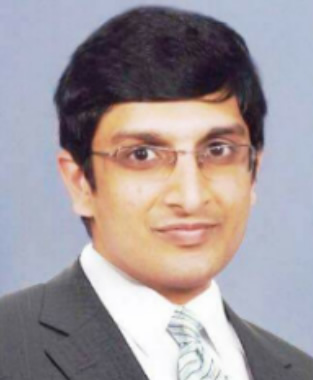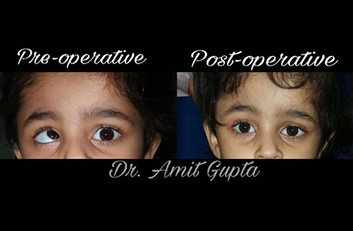Squint is a condition in which there is misalignment of
eyes causing abnormality in Binocular Vision. It is also
known as cross eyes. It is seen in around 5% of people
worldwide and can occur at any age from birth to old age. In
children, squint can cause decreased vision (Lazy eyes or
amblyopia). So, it is not only cosmetic as it has important
bearing on the vision of children.
There are a lot of myths associated with squint:
-
Squint
in children corrects with age
-
It has no effect on vision
-
All squints require surgery for treatment
-
Squint is a
sign of good luck and no treatment is possible for this
-
Surgery for squint is possible only after the age of 18
years
-
Squint surgery is cosmetic and has no effect on
vision
-
squint surgery can lead to loss of vision.
All these myths are hearsay and have no scientific basis to
this. A consultation for squint with a squint specialist
should be as early as possible to prevent the binocular
vision to be affected by it. All the squints do not require
a surgical correction. Some squints can be managed with
glasses alone. In case there is amblyopia or lazy eye in a
child, vision is improved prior to surgery if at all
required.
Surgery for squint is totally safe and has very good results
from age of 8 months as well. Treatment for squint is
possible in adults as well but if vision has been lost
because of lazy eyes, it may not improve in adults.
Squint surgery is not only cosmetic as is commonly referred
to by patients and many health care professionals as well.
There is a lot of literature which mentions the psychosocial
aspect of squint which affects their self esteem,
interpersonal relations, school performance and in adults
their occupational performance and job opportunities. It
also has a bearing on the marital prospects of the
individual keeping in mind the society we are part of.
Early treatment maximizes the chances of having a good
binocular vision and decrease the duration of psychosocial
impact of squint.
Some important points to be kept in mind…
-
Any squint in a
child persisting beyond 6 months of age needs an evaluation
with a squint specialist
-
All squints don’t need surgical
correction.. Few can be corrected with glasses alone.
-
Some children have a false squint because of broad nasal
bridge but an eye check with a squint specialist is a must
to confirm.
-
Squint surgery is safe and possible with good
results in children as young as 1 year and in adults as
well.
-
Squint surgery is not just cosmetic surgery. It has
a significant pyschosocial impact on the self image of the
patient.



